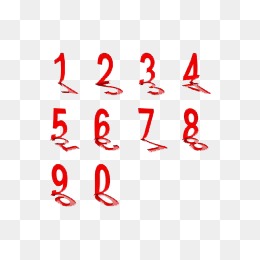788. Rotated Digits 旋转数字
作者: 负雪明烛 id: fuxuemingzhu 个人博客: http://fuxuemingzhu.cn/
@TOC
题目地址:https://leetcode.com/problems/rotated-digits/description/
题目描述
X is a good number if after rotating each digit individually by 180 degrees, we get a valid number that is different from X. A number is valid if each digit remains a digit after rotation. 0, 1, and 8 rotate to themselves; 2 and 5 rotate to each other; 6 and 9 rotate to each other, and the rest of the numbers do not rotate to any other number.
Now given a positive number N, how many numbers X from 1 to N are good?
Example:
Input: 10
Output: 4
Explanation:
There are four good numbers in the range [1, 10] : 2, 5, 6, 9.
Note that 1 and 10 are not good numbers, since they remain unchanged after rotating.
Note:
- N will be in range [1, 10000].
题目大意
在[1,N]双闭区间中,有多少个数字,将其倒影之后和自身不同。
解题方法
重要的是理解题意,就好比下面的这个倒影,要求倒影和自身不同,但倒影也必须是数字:

可以总结出以下的要求:
- 该数字中不含
[3, 4, 7],否则其倒影不是数字。 - 该数字中必须包含
[2, 5, 6, 9]中的至少一个,否则倒影和原数字相同
最后的结果是有多少个,遍历之后很容易得到答案。
class Solution(object):
def rotatedDigits(self, N):
"""
:type N: int
:rtype: int
"""
valid = [2, 5, 6, 9]
nonValid = [3, 4, 7]
def isGood(num):
for y in nonValid:
if str(y) in str(num):
return False
return any(str(x) in str(num) for x in valid)
return sum(map(int, [isGood(n) for n in range(1, N + 1)]))
二刷,基于同样的思想,写了一个更简洁的代码。
class Solution(object):
def rotatedDigits(self, N):
"""
:type N: int
:rtype: int
"""
dmap = {"0" : "0", "1" : "1", "8" : "8", "2" : "5", "5" : "2", "6" : "9", "9" : "6"}
res = 0
for num in range(1, N + 1):
numlist = list(str(num))
if any(x in numlist for x in ["3", "4", "7"]):
continue
numRotate = map(lambda x : dmap[x], numlist)
if numRotate == numlist:
continue
res += 1
return res
看了别人的提交,发现了一个更简单的思路,就是我们不需要把翻转后的数字构建出来,我们只需要找出特定的字符是否在字符串中即可。比如,如果数字包含["3", "4", "7"],那么肯定不可以。如果数字包含["2", "5", "6", "9"],那么一定可以。如果这些数字都不包含,那么就是翻转之后是自身的数字,就不能计算到结果里。
class Solution(object):
def rotatedDigits(self, N):
"""
:type N: int
:rtype: int
"""
dmap = {"0" : "0", "1" : "1", "8" : "8", "2" : "5", "5" : "2", "6" : "9", "9" : "6"}
res = 0
for num in range(1, N + 1):
if any(x in str(num) for x in ["3", "4", "7"]):
continue
if any(x in str(num) for x in ["2", "5", "6", "9"]):
res += 1
return res
日期
2018 年 2 月 26 日 2018 年 11 月 11 日 —— 剁手节快乐
